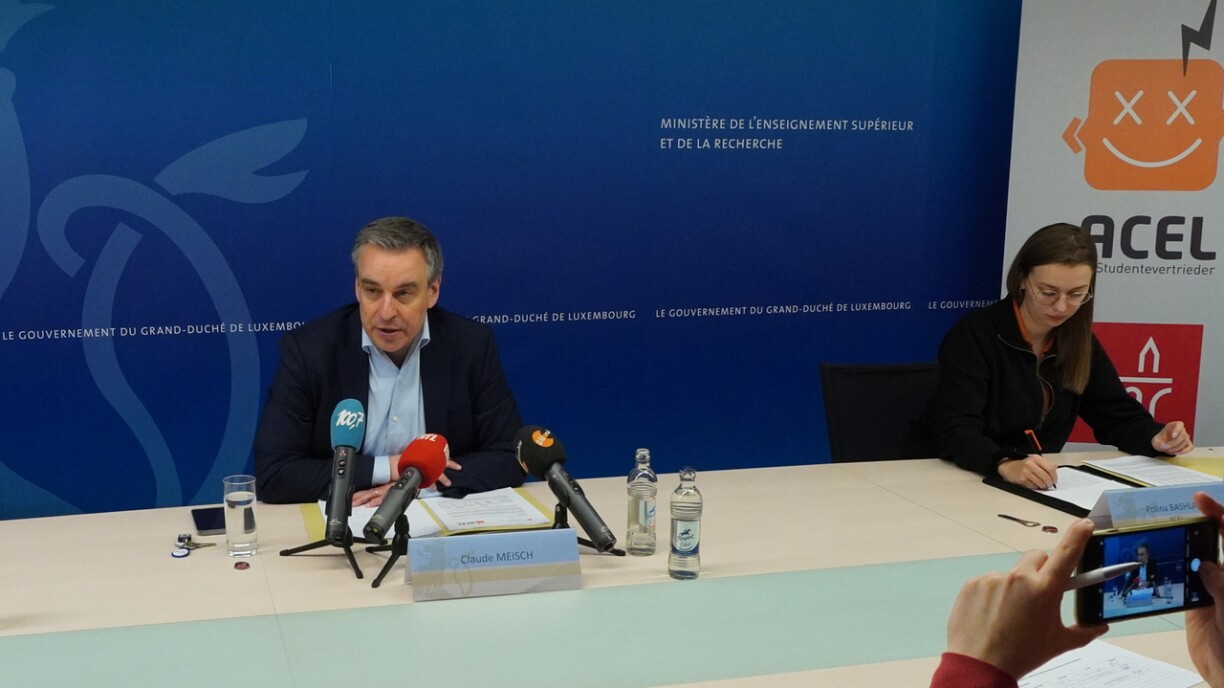
After two difficult pandemic years, students are now facing the challenges of a war in Europe, an unfolding energy crisis, as well as rising inflation. On Monday, Minister of Higher Education and Research Claude Meisch provided insight into a set of new support measures to help students get through this difficult period.
The Democratic Party politician explained that students also have to fill up their cars and heat their apartments, which is why the Ministry decided to implement a quick support rather than spend years revising the entire funding mechanism. The increased aid will already be awarded as of the academic year 2022-23.
Minister Meisch elaborated that it has always been the goal of the funding system to allow young people from low-income families to carry out their studies, which is why the adjustment for inflation is particularly important. “In the future, we will need more young professionals with university degrees to tackle the big issues, advance our economy, and strengthen our administrations”, the politician underlined.
To allow everyone who is qualified to study, the traditional funding system is divided into four different categories: the basic grant, the mobility grant, the grant based on social criteria, and the family grant.
Polina Bashlay, spokesperson of the Association of Luxembourg Student Organisations (ACEL), used the opportunity of the presentation to thank the Ministry for the cooperation and quick action: “The entire situation with the high energy prices only started a little over a month ago. Today, we are already sitting here and able to present to you a new support project.”
Bashlay stressed that many students cannot work and therefore have to fully rely on student funding, which is paid out once every six months. Minister Meisch also announced that every student who failed a semester due to implications from Covid-19 will be able to apply for support for an additional semester.
The decision to strengthen the buying power of students was taken in the context of the tripartite agreement. The measure is expected to cost the government €10 million.